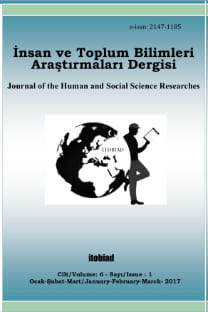Tevrat’a Göre İnsan Hayatı ve Onurunun Kutsallığı
Yahudilik, Tevrat, İnsan Hayatı, İnsan Onuru, Dokunulmazlık
Sacredness of Human Life and Dignity in Torah
-,
___
- Cassin, Rene S., “From the Ten Commandments to the Rights of Man”, erişim tarihi: 20.07.2015, http://renecassin.over-blog.com/article-from-the-ten-commandments-to-the-rights-of-man-72080499.html.
- Cohen, Abraham, Everyman’s Talmud, New York: Schocken Books, 1975.
- Çelebi, Ahmet, Mukayeseli dinler açısından Yahudilik, İstanbul: Kelam, 1978.
- Friedman, Hershley H., Human dignity and the Jewish tradition, erişim tarihi: 20.07.2015, http://www.jlaw.com/Articles/HumanDignity.pdf.
- Ginsburgh, Yitzchak, Kabbalah and the meditation for the nations, (ed.) Moshe Genuth, Jerusalem: Gal Einai, 5767/2006.
- Gürkan, Salime Leyla, “Yahudi”, Türkiye Diyanet Vakfı İslam Ansiklopedisi (DİA), Ankara: Türkiye Diyanet Vakfı, 2013, c. XLIII, s. 182-184.
- Hasanov, Eldar, “İslam Hukuku ile Karşılaştırmalı olarak Yahudi Hukukunda Zina ve Benzeri Cinsel Suçlar”, Yüksek Lisans Tezi, M. Ü. Sosyal Bilimler Enstitüsü, 2007.
- Hasanov, Eldar, Nuh Kanunları ve Nuhilik, İstanbul: İSAM, 2015.
- Hirsch, Emil G., “Gentile”, Jewish Enciclopedia, V, 615-619.
- Katz, Jacob, Exclusiveness and tolerance: Jewish-Gentile relations in medieval and modern times, New York: Schocken Books, 1962.
- Mekilta de-Rabbi Ishmael, çev. Jacob Z. Lauterbach, Philadelphia: The Jewish Publication Society of America, 1976.
- Midrash Rabbah, (ed.) H. Friedman, Maurice Simon, London: Soncino Press, 1939.
- Novak, David, “Gentiles in Rabbinic thought”, The Cambridge history of Judaism IV: the late Roman-Rabbinic period, (ed.) Steven T. Katz, Cambridge: Cambridge UP, 2006, 647-662.
- Novak, David, The image of non-Jew in Judaism: a historical and constructive study of the Noahide Laws, New York: The Edwin Melen Press, 1983.
- Rakover, Nahum, Gadol kevod ha-briyot:kevod ha-adam ke-ereh al, Yeruşalayim, 1998.
- Rakover, Nahum, Law and the Noahides: law as a universal value, Jerusalem: The Library of Jewish Law, 1998.
- Sarna, Nahum M., Exodus: the traditional Hebrew text with the new JPS translation, Philadelphia: The Jewish Publication Society, 1991.
- Schultz, Joseph P., Judaism and the Gentile faiths: comparative studies in religion, New Jersey: Associated University Presses, 1981.
- Sifre: a Tannaitic commentary to the Book of Deuteronomy, çev. Reuven Hammer, New Haven and London: Yale UP, 1986.
- Sperber, Daniel, “Gentile”, Encylopaedia Judaica, VII, 485-486.
- Stern, Sacha, Jewish identity in early Rabbinic writings, Leiden: Brill, 1994.
- The Babylonian Talmud, (ed.) Rabbi Epstein ve dğr., London: The Soncino Press, 1978.
- Wilf, Steven, The law before the law, Lanham: Lexinton Books, 2008.
- ISSN: 2147-1185
- Yayın Aralığı: 4
- Başlangıç: 2012
- Yayıncı: Mustafa SÜLEYMAN ÖZCAN
Yahudilik ve İslam'da Zina Suçu ve Cezası
MUSTAFA YİĞİTOĞLU, ÖMER FARUK HABERGETİREN
Geçmişten Günümüze İzmir Yahudileri: Yerleşme, Kurumsallaşma Süreci ve Mevcut Durum
Geçmişten Günümüze İzmir Yahudileri: Yerleşme, Kurumsallaşma Süreci ve Mevcut Durum*
İbrani Matbaacılığında Telif Hakları: 16-18. Yüzyıllar
Yahudilik ve İslam’da Zina Suçu ve Cezası
Mustafa YİĞİTOĞLU, Ömer HABERGETİREN
Tevrat'a Göre İnsan Hayatı ve Onurunun Kutsallığı
Rabbani Yahudiliğin İlk Yorum Prensipleri: Hillel'in Yedi Yorum Kuralı
Rabbani Yahudiliğin İlk Yorum Prensipleri: Hillel'in Yedi Yorum Kuralı
